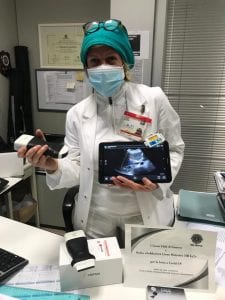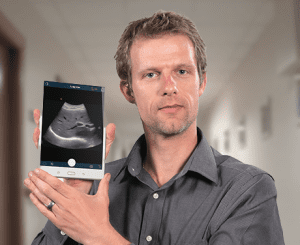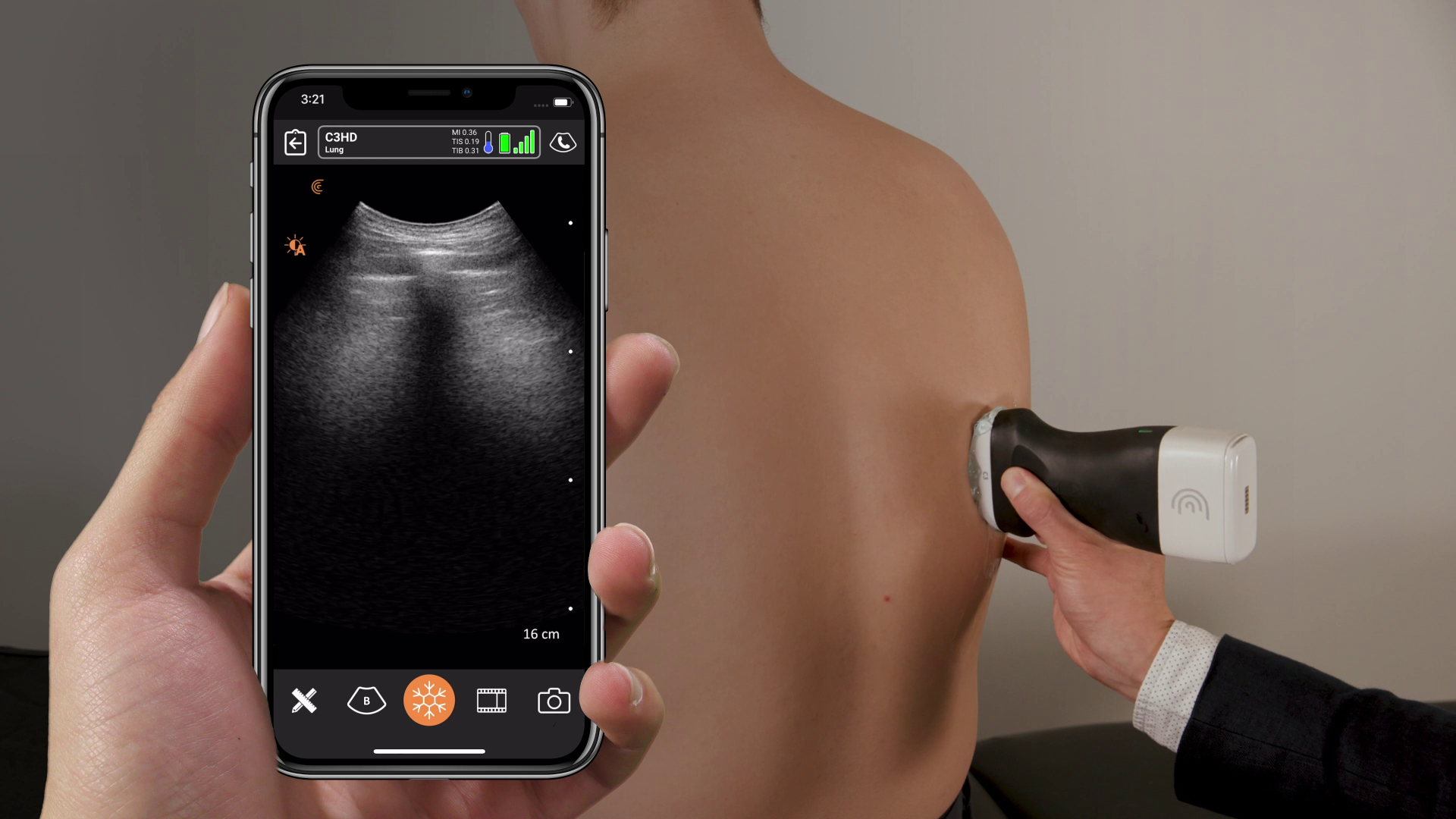
The ongoing COVID-19 pandemic has had a very unexpected impact on BCIT alumnus-turned-donor Kris Dickie and his work as Vice President, Research & Development (R&D) at Clarius Mobile Health.
In the fight against the spread of COVID-19, the handheld medical ultrasound device Kris and his R&D team developed has become an indispensable frontline tool used to check patients’ lungs for acute pneumonia, present in the most severe cases of COVID-19. Demand has surged for the technology, which Kris and his team had originally developed to meet a niche need in the field for low-cost, high-performance diagnostic ultrasound systems.
“With so many industries around the world facing challenges, our team feels extremely grateful to be part of a solution that is helping to save lives,” says Kris. “Never in my 20 years developing ultrasound technology have I seen such a sudden upsurge in the need for portable diagnostic equipment.”
The wireless revolution
Handheld wireless scanners, unlike the bulky, cart-bound ultrasound equipment hospitals have used since the 1950s, are portable and can be used at a patient’s bedside. Single-use sleeves protect users from contamination and doctors can receive images right to a smartphone or tablet.
What sets Clarius’ devices apart are the high-quality images the device produces—images Kris says rival those of cart-based machines.
Developed right here in the Lower Mainland, the technology has global application. “Right now, only one in 10 countries has access to high-quality ultrasound technology,” says Kris who goes on to explain that their simple, app-driven interface requires less training for new users. Starting at $6,500 per unit, the devices also come in at a fraction of the $100,000 cost of a full-sized machine.
Putting in the work

Kris credits the “intense” years he spent at BCIT earning his Diploma in Computer Systems Technology and Bachelor of Technology degree with giving him the ability to thrive under pressure in the highly competitive world of a technological start-up, where he now, as Vice President of R&D, mentors a team of over 20 people.
Now, as a member of BCIT’s Biomedical Engineering Advisory Committee, Kris hopes to highlight the opportunities open to BCIT graduates in the field of development. “Hospitals are where technology is used, but a medical device company gives graduates the chance to develop, test, and deploy technology, not just use it.”
Once the Province’s health advisory has been eased, the BCIT alumnus plans to donate two of Clarius’ first-generation wireless scanners to BCIT’s Biomedical Engineering Technology program.
“Kris’ company is home grown, and there’s now a big demand for simple, easy-to-use handheld devices like his,” says Biomedical Engineering Technology Program Head, Anthony Chan. “We are looking forward to using these devices in our medical imaging courses.”
“I love creating technology,” says Kris. “It’s that much more satisfying when it’s used to make a positive impact in the world of health care.”
About BCIT’s Biomedical Engineering Technology Program
The BCIT Biomedical Engineering Technology program is the only one of its kind offered in BC and the only one in Canada that is specifically targeted to both hospital and medical device industries.

1 thought on “BCIT alumnus-developed portable ultrasound device uses home-grown technology to screen for COVID-19”